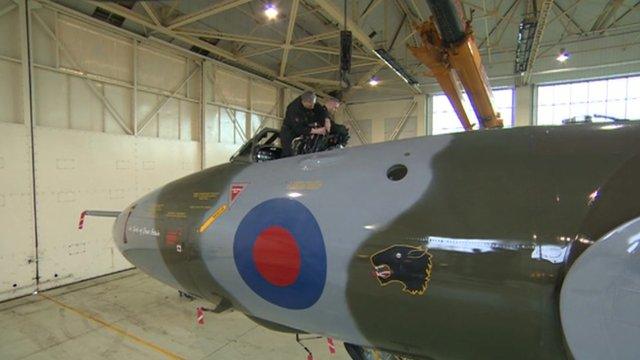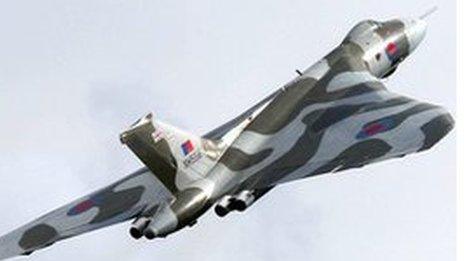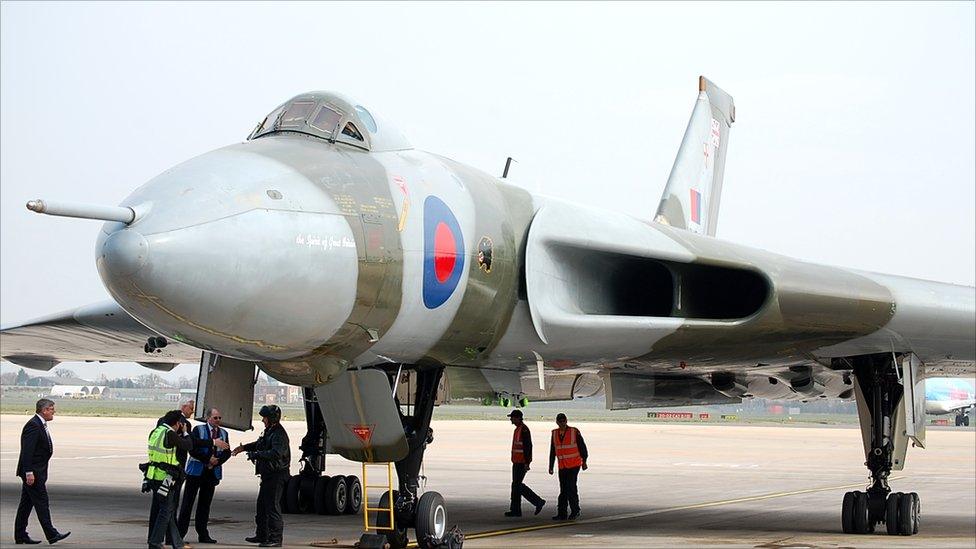Last flying season for Vulcan bomber XH558
- Published
The last flying Vulcan bomber plane will not fly after the 2015 air display season because of its age and a lack of engineering support
The last flying Vulcan bomber aircraft will not be able to take to the skies after the 2015 display season, its owners have said.
The plane, registered as XH558, based at Robin Hood Airport in South Yorkshire, has previously faced funding problems and technical issues.
But now engineering backers, including Rolls-Royce, have withdrawn support.
Charity Vulcan to the Sky Trust, which runs the aircraft, said the plane was beyond its flying hours.
The plane originally arrived at RAF Waddington in 1960 and was the last Vulcan to leave RAF service.
In October 2012 it was decided "challenging modifications" to both wings would not be sustainable to the old aircraft but those problems were overcome.
Now its Leicestershire-based owner have said the aircraft's age and withdrawal of technical support makes its future unviable.
'Unique legacy programme'
The trust's engineering director, Andrew Edmondson, said: "Having evaluated a great many factors, the three expert companies on whom XH558 depends - known as the 'technical authorities' - have together decided to cease their support at the end of this flying season.
"Without that support, under Civil Aviation Authority regulations, she is prohibited from flying.
"Although we are all confident that XH558 is currently as safe as any aircraft flying today, her structure and systems are already more than 10% beyond the flying hours of any other Vulcan, so knowing where to look for any possible failure is becoming more difficult."
A Rolls-Royce spokesman said: "After long consideration and discussion with Vulcan to the Skies, we have concluded continued work on the project is no longer possible due to a shortage of relevant skills and experience to support this unique, legacy programme."
BAE Systems who also withdrew from the project, said: "The project was one of the most complex heritage engineering projects undertaken anywhere in the world."
- Published28 November 2012

- Published3 November 2012

- Published13 October 2012
